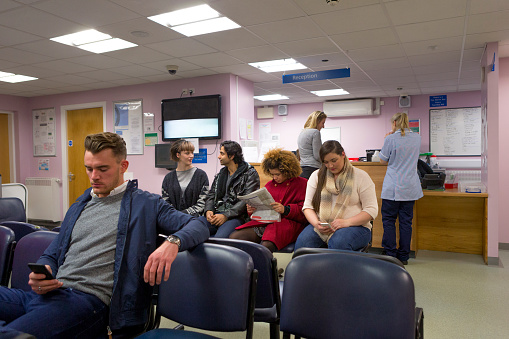Millennials are projected to become the largest U.S. population group next year

Millennials are more comfortable with non-traditional engagement with their healthcare providers, and are more likely to apply shopping habits commonly found in the online retail realm to their healthcare decision making. (Getty Images)
Anyone who has been involved in the healthcare real estate (HRE) business for even a short time understands that one of the primary factors that makes the sector attractive is demographics, specifically the aging of the baby boom generation. That has certainly been the mantra of HRE professionals for the 15-plus years Healthcare Real Estate Insights has been covering the industry, and was probably also the case well before HREI came along in 2003.
But U.S. demographics are changing. For example, did you know that the population of millennials is projected to exceed the population of baby boomers by next year?
“Millennials are on the cusp of surpassing baby boomers as the nation’s largest living adult generation,” according to a recent article from the Pew Research Center.
Based on U.S. Census Bureau population projections as of July 1, 2016 (the latest date for which population estimates are available), millennials, which Pew defines as ages 20 to 35 in 2016, numbered 71 million, and boomers (ages 52 to 70) numbered 74 million. Millennials are expected to overtake boomers in population in 2019 as their numbers swell to 73 million and boomers decline to 72 million. Generation x (ages 36 to 51 in 2016) is projected to pass the boomers in population by 2028.
So what do those changes mean for the healthcare industry and the HRE space – a business that was largely built on the opportunities associated with the proverbial “aging of the baby boomers?”
Perhaps surprisingly, these demographic shifts might be a positive trend for the HRE space.
In its latest investor presentation – released yesterday – Scottsdale, Ariz.-based Healthcare Trust of America Inc. (NYSE: HTA) provides information as to why it, as the nation’s largest owner of medical office buildings (MOBs), it remains so bullish on the sector.
Under the heading of “Demographics Drive Increased Healthcare Utilization,” the HTA presentation predictably touches on the familiar “aging baby boomer” theme – and rightly so, as that massive demographic wave will continue to drive HRE activity for many years to come. It notes that, “Aging demographics boost healthcare spending,” 10,000 people are turning 65 every day (and they use four times as much healthcare as younger people), and the average lifespan will surpass 80 by 2020.
But the HTA presentation also notes that, “Millennials are forming families, a key inflection point for healthcare volumes.”
And aside from the obvious healthcare demand generated by family formation – including an uptick in the need for gynecology, obstetrics, pediatrics, primary care and urgent care services – millennials also have a different attitude when it comes to healthcare.
Of course, it is a gross generalization to say any particular population group behaves in a certain way. There are always individual differences. But researchers are able to identify certain patterns of behavior that tend to be more common among various population cohorts.
For example, one recent study has found that millennials are more comfortable with non-traditional engagement with their healthcare providers, and are more likely to approach their healthcare decision making in much the same way they approach online retail decisions.
The Employee Benefit Research Institute (EBRI)/Greenwald & Associates Consumer Engagement in Health Care Survey (CEHCS) found that millennials are:
■ More than twice as likely as baby boomers to use a walk-in clinic. Thirty percent of millennials have used a walk-in clinic, compared to 14 percent of boomers and 18 percent of gen xers.
■ More than twice as likely to be interested in telemedicine than baby boomers. Forty percent of millennials are interested in telemedicine compared with 19 percent of boomers and 27 percent of gen xers.
■ More likely than other generations to have researched healthcare options, such as checking the quality or rating of a doctor or hospital (51 percent millennial vs. 34 percent gen x and 31 percent baby boomers); using an online health cost tracking tool (28 percent millennial vs. 17 percent gen x and 10 percent baby boomers); or otherwise finding health cost information (72 percent millennial vs. 65 percent gen x and 64 percent baby boomers).
■ More likely to participate in wellness programs. For example, millennials are more than twice as likely than baby boomers to participate in counseling on stress management, mindfulness classes and resiliency training (33 percent millennial vs. 21 percent gen x and 15 percent baby boomers).
Understanding the importance and behavior of the baby boomers has been a key to success for HRE professionals in the past, as it will undoubtedly continue to be for many years to come. But understanding the importance and behavior of millennials – and gen xers – will be just as important in the future.
To find out how to obtain a copy of the complete copy of the Pew Research Center study, please visit http://www.pewresearch.org/fact-tank/2018/03/01/millennials-overtake-baby-boomers/
The full content of this article is only available to paid subscribers. If you are an active subscriber, please log in. To subscribe, please click here: SUBSCRIBE





